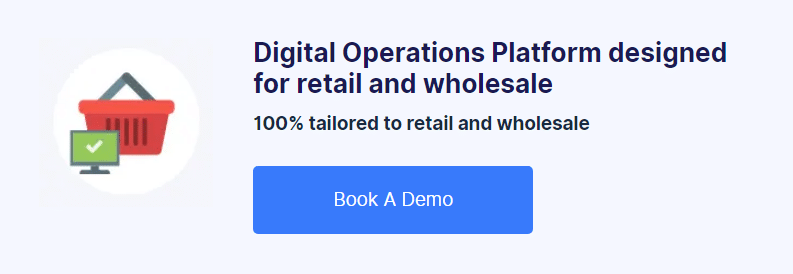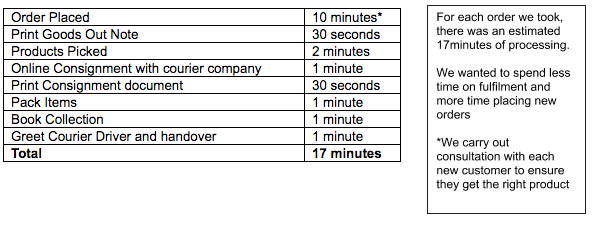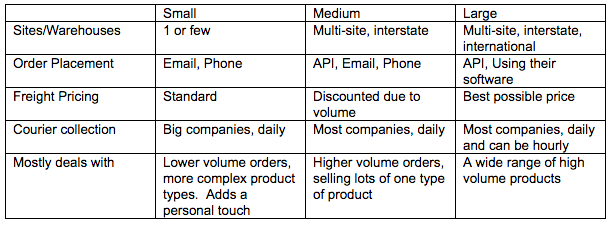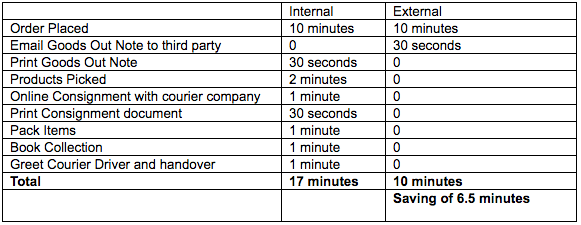The Benefits of Outsourcing for Improved Operational Efficiency
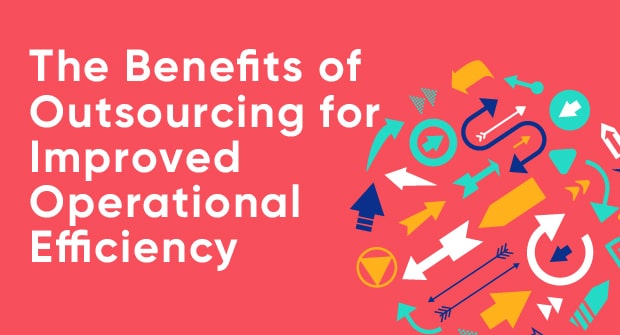
About the Authors
This white paper was written by Tony Renkin and Patrick O’Sullivan from Tamper Evident, a Brightpearl customer. Tamper Evident provide a range of products to stop theft, control access to goods in transit/storage, protect intellectual property and secure confidential information. From three warehouses, Tamper Evident distributes products to customers across Australia, the Asia Pacific region and United States.
What’s inside?
With some clever planning and savvy business techniques, business-to-business and business-to-government supplier Tamper Evident doubled its sales without adding extra staff. It’s now Australia’s fastest growing specialist distributor of tamper-resistant and tamper-evident security seals.
Here Tamper Evident shares how it outsourced it’s warehousing and fulfilment to become a better B2B business.
Outsource Where You Can
You wouldn’t try to provide electricity to your business. You also wouldn’t try to do your own tax return and expect to get the best result. There are power companies and accountants who can do these jobs quicker and better than you can.
At Tamper Evident, we learned early on to focus on the things we are great at. We are experts at providing advice and service in the tamper-evident industry, but we are not graphic designers, marketing experts or web developers. Whenever we have tried to carry out these tasks ourselves, we found that:
- It takes us a great deal longer
- The end quality is lower
- Other elements of our business suffer – like customer service
If your business is anything like ours used to be, you have more work that you can handle and not enough time to get them all done. Think of outsourcing as prioritising what’s important. For instance, you might want to spend the majority of time being available for your customers and as little time as possible in administrative tasks.
This like warehousing and fulfilment, copywriting, web development, accounting and even after-hours call answering can be outsourced to free up your time to focus on what is really important to you.
As an aside, anything that involves customer perception of our brand is something we keep squarely in our domain. As we are mostly an online B2B business, we take control of anything that involves sales or customer relationship management – because it’s essentially your brand reputation at stake.
How to outsource well
We will use the process we went through to outsource our warehouse and fulfilment to explain how to outsource properly. This process is essentially the same for any part of your business; review the process and its true cost, identify the outsourcing opportunity, find the right partner and a final review before making the move.
Initial Review
When we first started Tamper Evident, we were able to handle orders and inventory in our office. As sales grew, our product range expanded and our service proposition improved (same day dispatch) it became harder to get all the fulfilment steps completed on time. We had multiple courier companies to deal with, collecting at different times. We had to pick, pack and ship the items. We had to send invoices.
As the table shows, we had too much time being tied up on the fulfilment stage of order handling. When we received 10 orders in a day, someone had to spend half their day processing the sales. When we received 20 or 30 or 40 orders it was all hands on deck; nothing else go done.
The cost in wages may have only been $8 to $10 in wages, but the lost opportunity to make direct marketing calls, visit clients, respond to customers was much higher.
Action: Write down the amount of time that your business spends on an individual task. Multiply that by how many times the task is carried out in a day, week or month. This gives you the cost in time of that task. Now think about the other things that your business could be doing with that time. This identifies the opportunity cost of doing the task.
Identify the outsourcing opportunity
You will have heard about third-party fulfilment companies; they can do every stage of the order process, including processing the initial order.
We didn’t think we could pass this out. Our customer requirements are complex and often need consultation.
We settled on finding a partner who could dispatch our goods with the right documentation, send us back tracking details and product serial numbers and ensure we met our same day dispatch service level.
We wanted to outsource about 7 minutes of work per order.
What’s the benefit of outsourcing to expert fulfilment companies? There are many, such as:
- They have scheduled pickups from all the major courier companies
- They send more items, more frequently and often get better pricing from courier companies because of this, and pass the saving on
- They pick and pack all day long, with processes in place to minimise errors. The right items get sent every time
As we were outsourcing our fulfilment, we also needed to outsource our warehousing (so they had the stock to send).
Action: For a particular task, identify the parts of it that can be completed by someone else. Write a list of benefits (apart from the free time) that they may be able to add. What is it that makes them experts?
Find the right partner
Outsourcing partners can offer very different levels of service. When we looked for a fulfilment partner, we found that there were three main categories.
We wanted to keep close to the order process and know the people who were dispatching our goods. We also wanted to be able to have flexibility to respond to our customers’ needs if urgent orders can in past the cut-off times. We also import goods from around the world, so we wanted a fulfilment company that could handle the customs and clearance requirement.
Because of this, we chose a smaller organisation with more of a personal touch.
Action: Research a number of outsource partners of different types and sizes to get a feel for the options available. Map this options out into a table or list and highlight the ones that are important to your business goals. This should give you a shortlist of partners to pick.
Final Review
Once we identified a partner, we carried out a review what changing to an outsourced warehouse would mean. This was a final check to confirm we were making the right decision and to clarify the impact on the business. First we looked at the time saving:
We would still need to process the order and email it to the fulfilment company, but we would still be saving 6.5 minutes of handling time. We calculated this to be a saving of $8.50 per order (This is based on Australian wages at $30 per hour including applicable taxes. US and UK wages for a warehouse role are $10 and 11GBP respectively)
We had agreed on a price of $15 per order with our fulfilment company. It would cost us about double the price of carrying out the task internally. Was this the right thing to do? Consider the following:
- We did not have enough orders to hire someone fulltime to carry out fulfilment. It would have to take time away from our existing work
- We would essentially be hiring an expert fulfilment employee for 6.5 minute of work at a time. We would get their expertise and knowledge without long term commitment
- If we had no orders to process, we had no costs. If we had 100 orders to process, the fulfilment company would allocate more resources and we would get them all dispatched on time. We were scalable without any fixed costs
- Our time was free to carry out other activity. We use this time to carry out service follow-up calls with our customers, make sales calls with prospective leads and meet customers face to face. A much more valuable way to spend our time.
We believed it was the right decision, and still do! We moved all our import, warehousing and fulfilment business to an outsourced partner and have never regretted it.
Action: Evaluate the cost of outsourcing. Take the dollar cost of using a third party and consider the internal cost of doing the same thing. What additional benefits are there? Do you get experts who are better at completing tasks? Will it save time for your business? Will there be less errors?
Summary
Since then, we have taken the same approach to our copywriting (we are not writers), graphic design (we can’t draw) and web design (we are not SEO experts). Each time we identify the parts of the process where a third party can add value, and carry out the review steps to decide if it is worthwhile.
In some cases, we decide it must stay inhouse – we won’t outsource our customer service or relationship management.
Where it is right to do so, we get the experts in and get on with important parts of the business.

